Trustees

Richard Allen, Archivist and Records Manager at Magdalen College, Oxford, manages the college’s rich archives collections, heading the Archives staff within the Library and Archives team. His research concerns the ecclesiastical history of northern France in the High Middle Ages, with a particular focus on ducal Normandy (911–1204). Richard works primarily with charters and other such administrative records, and is particularly interested in what this material can reveal about the political, legal, economic and cultural circumstances of the societies in which it was produced. He has also published on topics ranging from ecclesiastical rivalry, through excommunication, the nature of episcopal power, the Cistercian abbey of Savigny, and the role of relics in the Middle Ages. A recent publication: The Aynho Cartulary and its Documentary Culture: Study, Text, and Translation (2025).
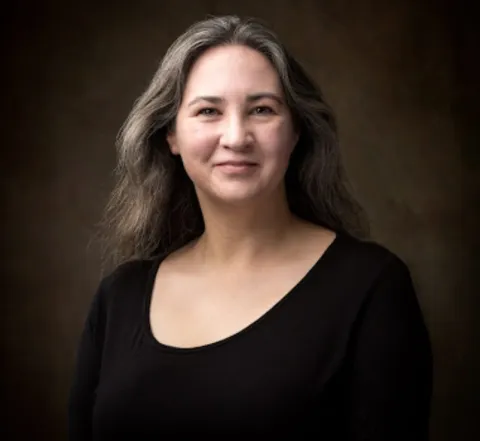
Elizabeth Boyle is Lecturer in Early Irish at Maynooth University in Ireland. Her research and teaching interests include Irish intellectual, religious and cultural history from the seventh to twelfth centuries; early Irish law; biblical adaptations in medieval literature; the literary history of Ireland in Latin and Old and Middle Irish (c. 600-1200CE); the history of scholarship, particularly colonialism and the discipline of Celtic Studies; life-writing, biography and creative nonfiction. In 2021 she published a research monograph, History and Salvation in Medieval Ireland, and in 2022 a collection of personal essays, Fierce Appetites (Penguin), which was shortlisted for Non-fiction Book of the Year at the Irish Book Awards. Other publications include: (ed. with Paul Russell, The Tripartite life of Whitley Stokes, 1830-1909 (2011); and (ed. with Ruairí Ó hUiginn), The Book of Uí Mhaine: Codices Hibernenses Eximii III (2023).

Sarah Bowden (honorary treasurer of SSMLL) is Reader in German and Medieval Studies at King’s College London. She works on the literature and culture of the medieval German lands, with a particular focus on the intersection between literature and theology in the eleventh and twelfth centuries. She is particularly interested in the development of German as a literary language and the relationship between German and Latin; in the emergence of a discourse of vernacular religious poetry; and in the manuscript transmission of German-language writing in the twelfth century. Sarah is the author of Bridal-Quest Epics: A Revisionary Approach (2012), which offers a major reappraisal of one of the canonical, yet problematic, genres of medieval German literature. Her latest book, Writing Sin in the German Lands, 1050–1215: Confession, Penance, and Textuality (2025), is about how sin and atonement functioned as an impetus for textual production and formal, linguistic, and intellectual creativity.

Rachel A. Burns, Associate Professor and Tutorial Fellow in Medieval English Literature at the University of Oxford, works on medieval literature, with particular focus on Old English verse, manuscript studies, and verse metre. Her research is animated by a materially and historically inflected focus on poetics and theology, reading both things and texts, and probing the global outlook of early medieval authors in the construction of their own national and religious identities. Rachel’s publications include: A History of Old English Verse Layout: Poetics on the Page (2024); A Theology of Things in Early Medieval English Literature (2025); and (ed. with Rafael J. Pascual), Tradition and Innovation in Old English Metre (2022).

K. P. Clarke is Professor in the Department of English & Related Literature at the University of York, and the Director of its Centre for Medieval Studies. Previously Kenneth was the Keith Sykes Research Fellow in Italian Studies at Pembroke College Cambridge, where he was also an Affiliated Lecturer in the Italian Department. Part of his research has focused on the Italian sources of Chaucer. Currently he is working on Boccaccio, as well as the fourteenth-century commentary tradition on Dante's Comedìa. Publications include Chaucer and Italian Textuality (2011), and Dante's Divine Comedy: A Reading Guide (2024). With Mary Carr and Marco Nievergelt he edited On Allegory: Some Medieval Aspects and Approaches (2008), and, with Sarah Baccianti, an essay-collectionen titled On Light (2014, a Medium Ævum monograph).
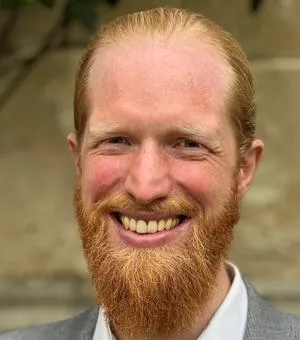
Andrew Dunning (honorary secretary of SSMLL) is the R. W. Hunt Curator of Medieval Manuscripts at the Bodleian Library, University of Oxford, and the Hugh Price Fellow in Book History at Jesus College. At the Bodleian, he promotes the preservation and enhancement of one of the world’s most significant collections of medieval manuscripts. Ensuring that these extraordinary books remain accessible to future generations involves collaborating with conservation and digitization teams to maintain their physical condition, conducting research to make them more available and understandable, and inspiring contemporary audiences through public and community engagement with research. Previously, Andrew was Curator of Medieval Historical Manuscripts at the British Library, a Munby Fellow in Bibliography at Cambridge University Library, a Mellon Postdoctoral Fellow at the Pontifical Institute of Mediaeval Studies, and a Postdoctoral Fellow from the Social Sciences and Humanities Research Council of Canada.
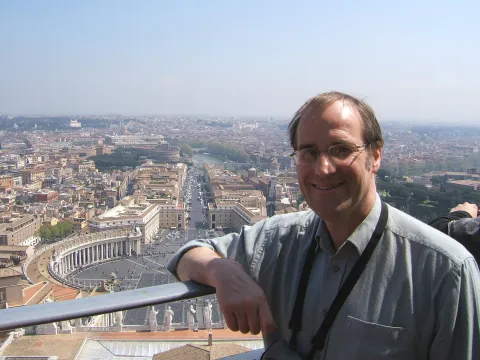
John Hines (one of SSMLL’s two Vice-Presidents) is Emeritus Professor in the School of History, Archaeology and Religion at Cardiff University. John is an expert on Anglo-Saxon and Viking Age archaeology, history and literature. His publications include: A New Corpus of Anglo-Saxon Great Square-Headed Brooches (Cambridge & Rochester, 1997); Voices in the Past: English Literature and Archaeology (Cambridge & Rochester, NY, 2004); (ed. with Allen J. Frantzen), Cædmon's Hymn and Material Culture in the World of Bede: Six Essays (2007); (ed. with Alex Bayless), Anglo-Saxon Graves and Grave Goods of the 6th and 7th Centuries AD: A Chronological Framework (2013); and (ed. with Nelleke IJssennagger-van der Pluijm), Frisians of the Early Middle Ages (2021).
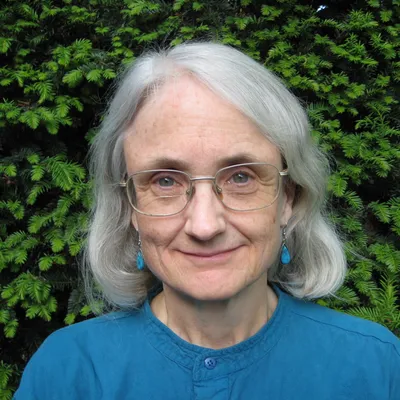
Sylvia Huot (Medium Ævum editor for Romance Languages) is Professor Emerita of Medieval French Literature at the University of Cambridge. Previously, she taught at Northern Illinois University and the University of Chicago. Sylvia specialises in in medieval French literature. Sylvia is the author of: From Song to Book (1987); The Romance of the Rose and its Medieval Readers (1993); Allegorical Play in the Old French Motet (1997); Madness in Medieval French Literature (2003); Postcolonial Fictions in the Roman de Perceforest (2007); Dreams of Lovers and Lies of Poets: Poetry, Knowledge and Desire in the Roman de la Rose (2010); and Outsiders: The Humanity and Inhumanity of Giants in Medieval French Prose Romance (2016). In addition, she co-edited the essay collection Rethinking the Romance of the Rose (1992). Sylvia is a Fellow of the British Academy and a Corresponding Fellow of the Medieval Academy of America.

Anthony Lappin (editor of the Medium Ævum Monographs), who served as SSMLL President from 2008 until 2014, is Lecturer on Spanish Literature in the Department of Romance Studies and Classics at Stockholm University. He is the author of The Medieval Cult of Saint Dominic of Silos (2002), and Gonzalo de Berceo: The Poet and his Verses (2008, a fresh look at the whole corpus of works traditionally ascribed to that thirteenth-century Riojan writer). Anthony’s editorial work includes Three Discovery Plays: Auto da barca do inferno, Exortação da guerra, Auto da Índia (1997), texts concerned with the expansion of Portugal in Africa and India through either crusade or commerce; Berceo's Vida de Santa Oria: Text, Translation and Commentary (2000); and Alchoran latinus I : Paris, Bibliothèque de l'Arsenal ms. 1162 (2022), this being the earliest MS of the first Latin translation from Arabic of the Qur'an.
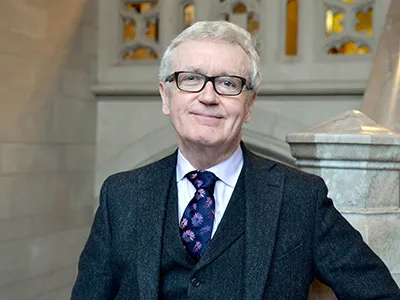
Alastair Minnis (SSMLL President) is the Douglas Tracy Smith Emeritus Professor of English at Yale University, and an honorary professor at the universities of York and St Andrews. His research methodology brings together reading strategies from literary criticism and the history of ideas, and an interest in medieval philosophy and theology has informed much of his work. Alastair is the author of: Medieval Theory of Authorship (1984; rev. edns. 1988, 2009); Magister Amoris: The Roman de la Rose and Vernacular Hermeneutics (2001); Fallible Authors: Chaucer’s Pardoner and Wife of Bath (2007); From Eden to Eternity: Creations of Paradise in the Later Middle Ages (2015); Hellish Imaginations from Augustine to Dante (2020, a Medium Ævum monograph); and Phantom Pains and Prosthetic Narratives: From George Dedlow to Dante (2021). He is a Fellow of the Medieval Academy of America and an Honorary Member of the Royal Irish Academy.
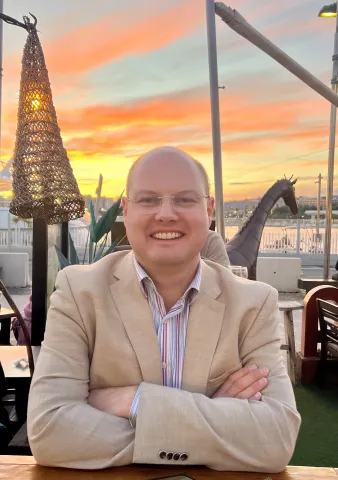
Stephen Mossman (Medium Ævum editor for Germanic Languages and Literature, excluding English) is Senior Lecturer in Medieval History in the School of Arts, Languages and Cultures at the University of Manchester. Stephen is a scholar of late medieval intellectual, religious, cultural and literary history, and works mostly on the German- and Dutch-speaking areas of Europe, always considering them within a European framework. For Stephen the challenge is the reconstruction of the intangible: the understanding of thought, opinion, and mentality in an age far removed from our own. His publications include: Marquard von Lindau and the Challenges of Religious Life in Late Medieval Germany: The Passion, the Eucharist, the Virgin Mary (2010); (ed. with Nigel F. Palmer and Felix Heinzer), Schreiben und Lesen in der Stadt: Literaturbetrieb im spätmittelalterlichen Strassburg (2012); and (ed. with Sarah Bowden and Nine Miedema), Verletzungen und Unversehrtheit in der deutschen Literatur des Mittelalters (2020).

David Rundle (managing editor of Medium Ævum, with special responsibility for Latin, history and palaeography)is Senior Lecturer in Latin and Palaeography in the School of History and the Centre for Medieval & Early Modern Studies at the University of Kent in Canterbury. David is a Renaissance historian and a palaeographer, who studies the evidence surviving manuscripts can provide for the circulation of ideas across Europe. His research has three main elements. One is the role of books within the late medieval and early modern culture of western Europe, at a time when the majority in most societies were illiterate. Another is the movement of ideas within the shared civilisation of Western Christendom, a topic he studies by using the physical evidence of surviving manuscripts to track the availability of and responses to works. This leads to the third element: the power of ideas in politics in the period. His publications include: The Renaissance Reform of the Book and Britain: the English Quattrocento (2019); (ed.), Humanism in Fifteenth-Century Europe (2012, a Medium Ævum monograph); (ed., with Ralph Hanna), A Descriptive Catalogue of the Western Manuscripts up to c. 1600 in Christ Church, Oxford (2017); and (ed., with H. R. Woudhuysen), Essays to Mark the Centenary of the Oxford Bibliographical Society 1922-2022 (2024). Further, in association with H. Schadee and K. Sidwell, David has edited Poggio Bracciolini’s On Princes and Tyrants (2024).
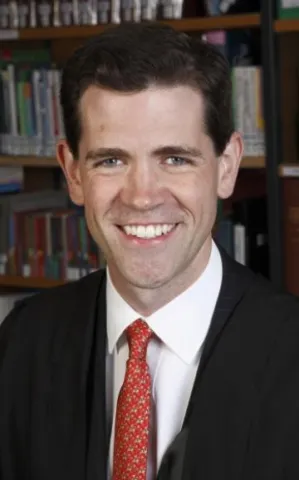
Christian Sahner is Associate Professor of Islamic History in the Faculty of Asian and Middle Eastern Studies and a Fellow of New College at the University of Oxford. He studies the history of North Africa, the Middle East, and Central Asia during the transition from Late Antiquity to the Middle Ages, being especially interested in relations between Muslims and non-Muslims (including Christians and Zoroastrians), religious conversion, Islamic sectarianism, and the intertwined histories of the Umayyad, ʿAbbasid, and Byzantine empires. Christian’s publications include: Among the Ruins: Syria Past and Present (2014), this being a blend of history, memoir, and reportage from his time in the Levant before and after the outbreak of the Syrian Civil War; Christian Martyrs under Islam: Religious Violence and the Making of the Muslim World (2018), which explores the little-known Christian martyrs of the early Islamic period and the role that violence did (or did not) play in the gradual Islamisation of the region; (co-edited with N. Hurvitz, U. Simonsohn, and L. Yarbrough), Conversion to Islam in the Premodern Age: A Sourcebook (2020); and The Definitive Zoroastrian Critique of Islam (2023), a study of the most important Zoroastrian polemical treatise of the medieval period.

Corinne Saunders (Medium Ævum editor for Old and Middle English) is Professor in the Department of English Studies at Durham University. Corinne specialises in medieval literature and the history of ideas, and has particular interests in romance writing and in medical humanities. Her current research is on mind, body and affect in medieval literature and thought. Corinne’s many publications include: The Forest of Medieval Romance (1993); Rape and Ravishment in the Literature of Medieval England (2001); Magic and the Supernatural in Medieval Romance (2010); and Beyond Nature: Magic, Enchantment and the Marvellous in Medieval Romance (2016). Further, Corinne has edited A Blackwell Critical Guide to Chaucer (2001); A Blackwell Companion to Romance: from Classical to Contemporary (2004); Cultural Encounters in Medieval Romance (2005); A Concise Companion to Chaucer (2006); and A Blackwell Companion to Medieval Poetry (2010).
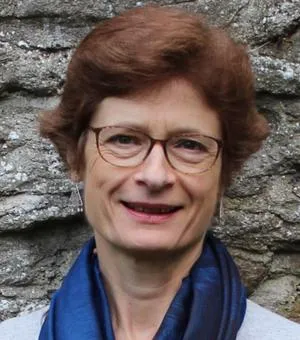
Julia Smith, Professor of Medieval History at All Souls College, University of Oxford, specialises in the period from the end of Antiquity to the central Middle Ages, and especially enjoys finding new and unusual angles from which to address seemingly familiar topics. After early work on early medieval frontiers, Professor Smith developed new specialisms in hagiography and saints’ cults, plus the history or women and gender in the early Middle Ages. Professor Smith has published two monographs, Province and Empire: Brittany and the Carolingians (Cambridge, 1992) and Europe After Rome: A New Cultural History 500-1000 (Oxford, 2005) and has edited several collaborative volumes, including Early Medieval Rome and the Christian West (Leiden, 2000); Gender in the Early Medieval World: East and West, 300-900 (co-edited with Leslie Brubaker, Cambridge, 2004) and The Cambridge History of Christianity, volume III: Early Medieval Christianities AD 600-1100 (co-edited with Thomas F X Noble, Cambridge, 2008).

Rebecca Thomas, Senior Lecturer in Medieval History in the School of History, Archaeology and Religion at Cardiff University, specializes in the history, culture, and literature of medieval Wales. The process of creating Welsh identities in medieval texts is her main research interest. Rebecca’s book on this subject, History and Identity in Early Medieval Wales, was published in 2022, and awarded the Francis Jones Prize for Welsh History. It examines the features used as signs of identity in Latin and Welsh texts, including names, territory, language, and legends of origin. Intertextuality is a crucial theme, and Rebecca explores the influence of texts from other parts of Britain and Europe on Welsh strategies of creating identities. She is also interested in political and cultural links between Wales and the wider world in the Middle Ages. Her current project, funded by the British Academy, is an investigation of hostages in texts from and relating to medieval Wales, focusing especially on the hostages given to English kings and hostages given among the Welsh themselves in the twelfth and thirteenth centuries. In 2023 Rebecca was awarded the Learned Society of Wales's Dillwyn Medal for contribution to the humanities and creative arts.
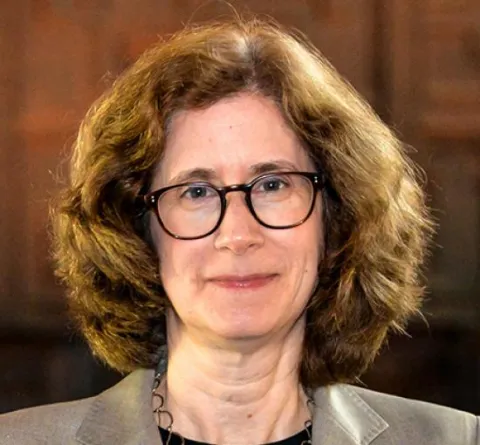
Julia Walworth is Fellow Librarian at Merton College, Oxford, and convener of the college’s ‘History of the Book’ research group. Her research interests are in the history of manuscript and early printed books in Western Europe, especially the functions of images, decoration, paratextual elements, and layout. In particular, Julia has worked with vernacular literary texts, university books and canon law books, and is also interested in the history of libraries and of book collecting. Her most recent book is Merton College Library: An Illustrated History (2020). Other publications include articles and reviews on the areas of manuscript illumination and library history, and a monograph, Parallel Narratives: Function and Form in the Munich Illustrated Manuscripts of Tristan and Willehalm von Orlens (2007), which examines the roles of narrative illustration in several thirteenth-century German literary manuscripts.
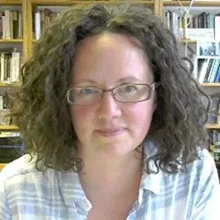
Sethina Watson (one of SSMLL’s two Vice-Presidents) is Reader of Medieval History at the University of York. She gained her BA in the USA, and following doctoral work and a research fellowship at Oxford was appointed at York. Sethina’s research interests range widely within the social and institutional history of religion 1050-1350, with particular attention paid to the role of the laity in the church. She has published on charitable houses in their many forms, investigating the legal and constitutional form of hospitals and their role in constructing relationships between the powerful and powerless. The complex position of these houses has led her to work on the institutions of religious life in the twelfth and thirteenth centuries. This includes canon law, monastic and religious life and the diocese. Sethina’s research has been recognized by the Royal Historical Society’s Alexander Prize. Her publications include: On Hospitals: Welfare, Law, and Christianity in Western Europe, 400-1320 (2020); and (ed. with Sarah Rees Jones), Christians and Jews in Angevin England: The York Massacre of 1190, Narratives and Contexts (2013).
Executive Officers
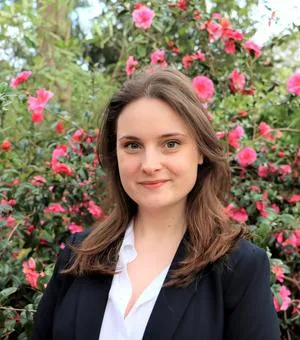
Eleanor Baker is the English Subject Lead for the University of Oxford’s Astrophoria Foundation Year. She completed her AHRC-funded DPhil on references to material texts in Middle English devotional literature at St John’s College, University of Oxford, and chapters of this thesis have appeared in Studies in Philology and Recipes and Book Culture in England 1350-1600, ed. by Hannah Ryley and Carrie Griffin. She has taught undergraduate students at colleges across Oxford and at Royal Holloway, University of London. Her first trade press book, Book Curses (Bodleian Publishing, 2024) comprises an anthology of bookish maledictions, and was positively reviewed in the TLS, The Spectator, and Publisher’s Weekly. She is currently working on a second anthology for Bodleian Publishing: Tales of Horror from Medieval England. Along with Laura Varnam and Kristen Haas Curtis she founded the Guild of Medievalist Makers, which brings together medievalists who work on creative-critical projects.
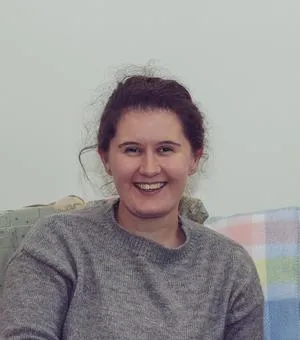
Hannah Ryley is Lecturer in Old and Middle English at Balliol College in Oxford. Her research interests lie in medieval manuscripts and materiality. Hannah's monograph, Re-Using Manuscripts in Late Medieval England (2022), argues that fifteenth-century reuse and recycling of book materials were customary aspects of production and symptomatic of more widespread sustainable practices in manuscript culture. Recipes and Book Culture in England 1350-1600 (2024), co-edited with Dr Carrie Griffin, highlights the most exciting new research into the contents and contexts of a diverse range of late medieval recipes. Most recently, a special issue of Digital Philology (2025), co-edited with Dr Julie Mattison, explores ‘big data’ and manuscript studies.
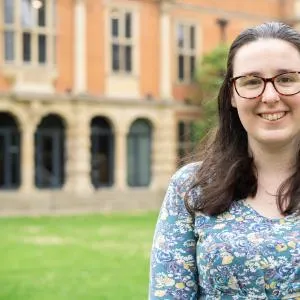
Anna Wilmore is a Lecturer in German at St Hugh’s and St Anne’s Colleges at the University of Oxford, a post she has held since completing her doctorate in 2023. She teaches translation as well as medieval and modern German literature and offers lectures for the faculty of Medieval and Modern Languages. Her DPhil thesis, funded jointly by the AHRC and the Willetts Scholarship at St Anne’s College, was a comparative study of Marian lyric in late-medieval French and German urban spaces. She recently organised an interdisciplinary workshop on ’The Sorrowful Virgin: Medieval and Early Modern Devotion’, which included performance of medieval and early modern laments as well as a manuscript session at the Weston Library. She will soon be taking up the Mary Somerville Junior Research Fellowship in German at Somerville College, where she will work on turning her thesis into a monograph, as well as beginning a new project, ‘Play and Piety in Pre-Modern Women’s Religious Writing’.
Graduate Observers
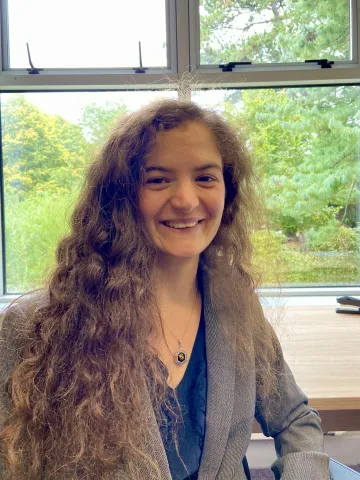
Elsina Caponetti is a Research Ireland PhD Scholar in the Department of Italian, University College Cork. Her research project entitled ‘Mirabilis visio: Dante’s Commedia and Irish Vision Literature’ has been funded by the Department of Italian at UCC (Eduardo Saccone Scholarship, 2021-2022) and by the Irish Research Council/Research Ireland (2022-2025). Her work focuses on Dante Alighieri’s Divine Comedy and its relationship with medieval vision literature, with particular attention to visionary texts of Irish origin that circulated widely across Europe during the Middle Ages. Elsina received her BA and her MA from the Università di Bologna, Italy (2018 and 2021), and her Licence en Lettres from the University of Haute-Alsace, France. At UCC, she is actively involved in the academic and outreach activities of the Centre for Dante Studies in Ireland (CDSI), and teaches Italian and Dante-related courses to undergraduate students.

LUCY TURTON, a PhD candidate in the School of English at the University of St Andrews, gained a BA(Hons) at the University of Melbourne and a Master of Studies, English (650-1550), at the University of Oxford. Her research centres on manuscript studies, vernacular poetry, textual editing, and cultures of pastoral care across the Middle Ages. Lucy is especially interested in reading practices and how they relate to changing cultural, linguistic, and oral traditions. Her doctoral thesis will produce a partial edition and critical study of Robert Mannyng's early fourteenth-century Middle English penitential poem Handlyng Synne, with a view to publishing a sorely-needed new critical edition as a post-doctoral project. She currently teaches, and lectures to, undergraduates in medieval and Renaissance literature at St Andrews, where she recently completed a Masters-level teaching qualification, the Postgraduate Certificate in Academic Practice.